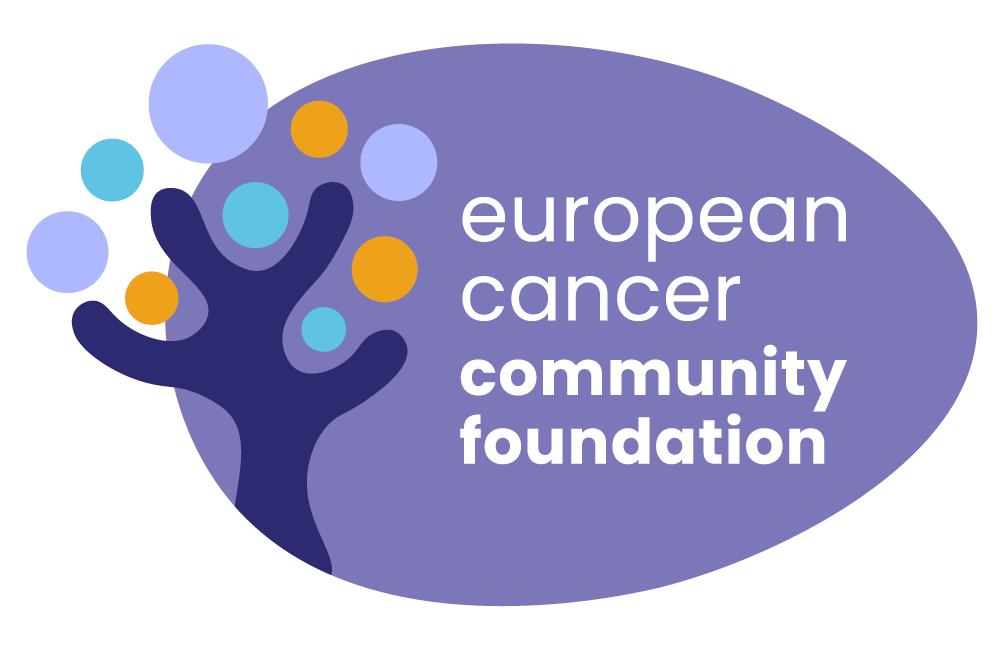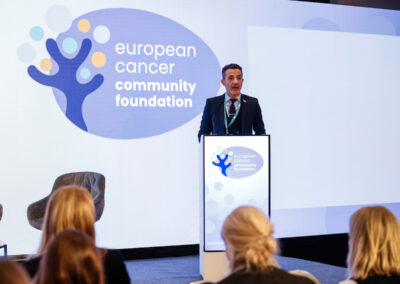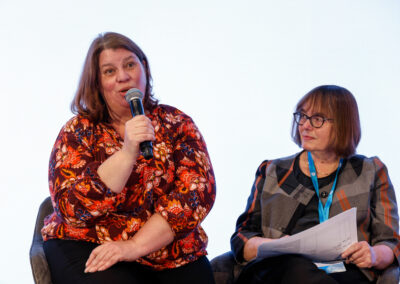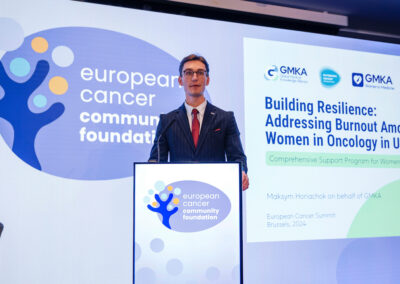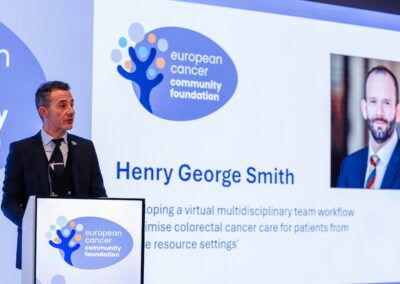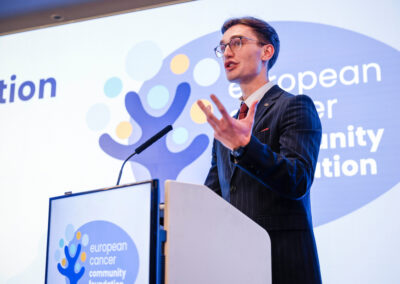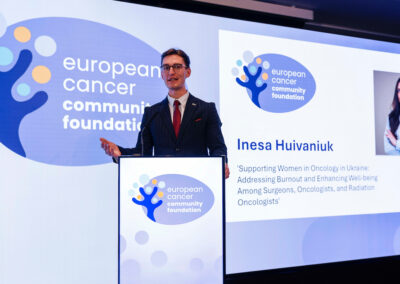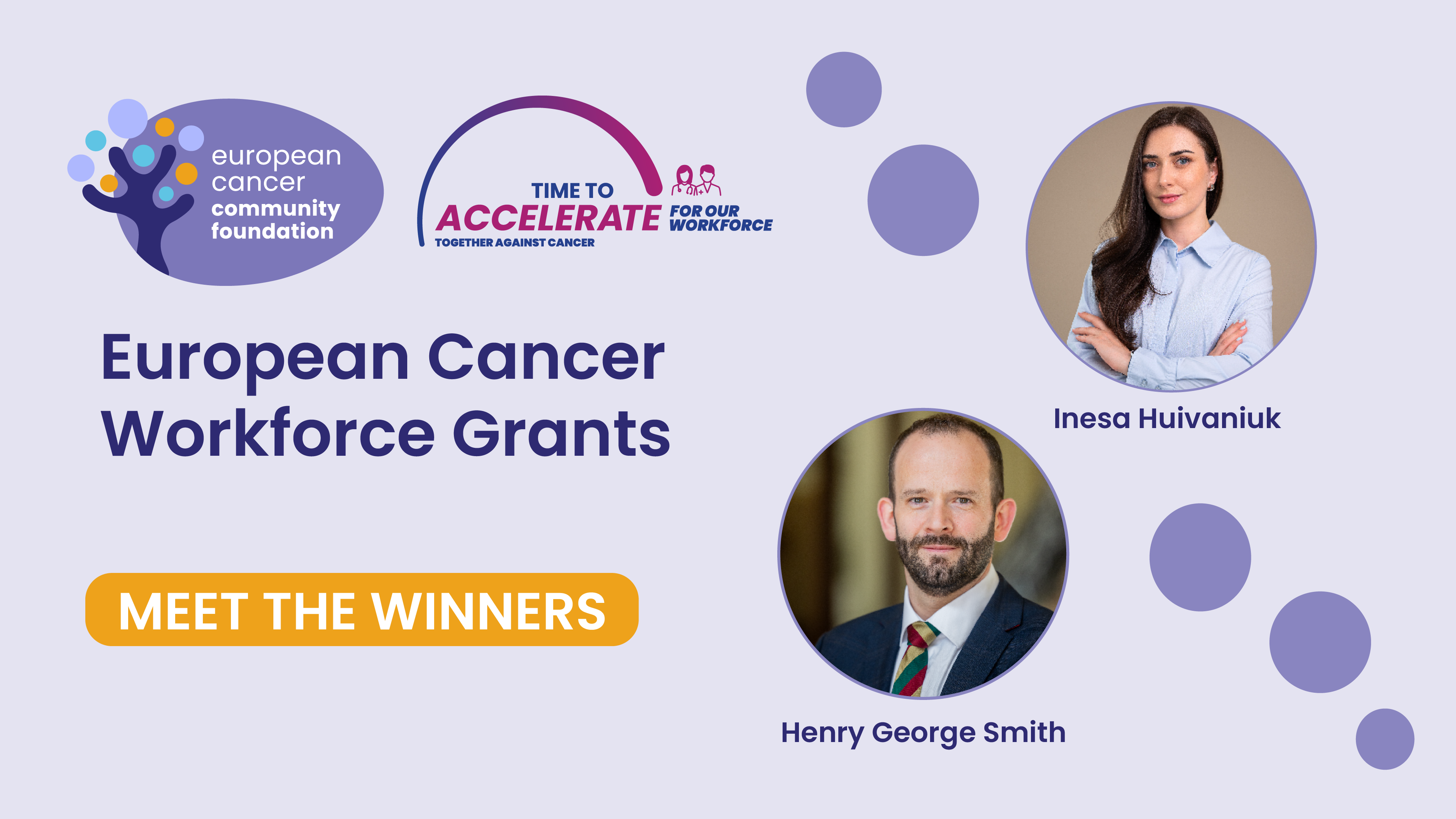
After a careful evaluation by the grant selection committee, the European Cancer Community Foundation is delighted to announce the winners of this year’s European Cancer Workforce Grants. These grants celebrate pilot initiatives designed to enhance the professional lives of the oncology workforce, ultimately increasing their capacity to save lives and improve patient outcomes across Europe and beyond.
The European Cancer Workforce Fund was launched in early 2024 in collaboration with the European Cancer Organisation’s Workforce Campaign. This partnership reflects the organisation’s commitment to innovative research that improves working conditions for men and women on the frontlines of cancer care.
The winners were officially announced by Prof. Andreas Charalambous, the Foundation’s founder and chair, during a special session at the European Cancer Summit in November.
We extend heartfelt congratulations to the winners:
- Henry George Smith, Consultant Surgeon, Copenhagen University Hospital, Denmark, for the project: ‘Developing a virtual multidisciplinary team workflow to optimise colorectal cancer care for patients from diverse resource settings’
- Dr Inesa Huivaniuk, Global Medical Knowledge Alliance Ukraine, Kyiv, Ukraine, for the project: ‘Supporting Women in Oncology in Ukraine: Addressing Burnout and Enhancing Well-being Among Surgeons, Oncologists, and Radiation Oncologists’
Discover 'Developing a virtual multidisciplinary team workflow to optimise colorectal cancer care for patients from diverse resource settings'
Bispebjerg Hospital is a major colorectal cancer centre in Copenhagen, Denmark. In addition to providing cancer services for the local population, Bispebjerg is also responsible for caring for patients with colorectal cancer from Denmark’s major islands – Bornholm, The Faroe Islands and Greenland. Differences in local resources, as well as geographical and linguistic differences, are major obstacles in providing cancer care of equally high quality to these patients.
In this project we plan to investigate whether the development of a virtual multidisciplinary team (MDT) workflow can allow these obstacles to be overcome, simultaneously reducing the demands on our local workforce whilst improving cancer care for our islander patients. We will focus on 3 main areas:
- Establishing a virtual clinic to allow pre- and post-operative video consultations with the team responsible for treatment
- Developing a virtual patient school, with online resources detailing the pre- and post-operative course
- Developing a virtual outreach team for islander patients with long-term adverse effects from treatment or who are not suitable for curative treatment
By focusing on these areas, we aim to allow our islander patients to be as well informed and well prepared for treatment as our local population is, whilst also reducing the workload for our local workforce through the development of online educational resources. The results of this project will be of relevance to any cancer services that care for patients from diverse resource settings and components may even be adapted to optimise the care of local patient populations.
Discover 'Supporting Women in Oncology in Ukraine: Addressing Burnout and Enhancing Well-being Among Surgeons, Oncologists, and Radiation Oncologists'
Burnout among women in oncology is a growing issue, particularly in Ukraine, where healthcare professionals face the dual burden of professional pressures and the impacts of ongoing conflict. Female physicians, including surgeons, oncologists, and radiation oncologists, experience higher rates of burnout due to unique gender-based challenges and work-related stress. Here we aim to establish a comprehensive support program for women in oncology in Ukraine to address burnout, promote well-being, and improve job satisfaction through mentorship, mental health resources, and leadership development. By implementing these strategies, we aim to foster resilience among women in oncology, ultimately improving patient care outcomes and ensuring the sustainability of the healthcare workforce.
Burnout is a critical issue in the oncology workforce, leading to decreased job satisfaction, emotional exhaustion, and negative impacts on patient care. Burnout is often driven by a lack of resources and support. Women in oncology face additional barriers, including gender discrimination, challenges in work-life integration, and limited access to leadership roles, which compound the risk for burnout.
In Ukraine, the challenging political and healthcare landscape further exacerbates these stressors, particularly for women physicians in high-stakes specialities like surgery and oncology. In a preliminary assessment conducted by our GMKA research team as part of our initiative to support women in medicine, nearly half (49%) of the 340 respondents indicated that there were no women in administrative positions. Along with difficulties in building trust with patients and senior colleagues, more than half of the respondents reported discouragement and explicit gender discrimination (80%), a lack of support in choosing surgical specialities (54%), and delays in having children due to the intensity of their work and the absence of workplace accommodations (59%).
Considering the current state of the healthcare system in Ukraine and the heavier workload placed on women physicians, who are predominantly responsible for treating the civilian population, we recognize the importance and urgency of providing meaningful support. This project aims to develop a pilot intervention targeting burnout among female oncologists in Ukraine, with a focus on enhancing their well-being through mentorship, mental health support, and career development opportunities.
Relive highlights of the award ceremony. Check out the photo gallery and watch the recording of the Cancer Workforce session here.
